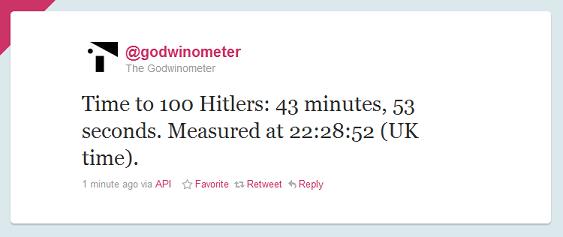A wave of the hand
696 words | ~3 min
Watching Mark Zuckerberg announce the changes to Facebook messages, I noticed this, as TechCrunch reports it:
Zuckerberg recalled talking to high schoolers recently and asking them how they communicate with one another. They don't like email. "It's too formal."
And here's the edit from the Telegraph:
Email is too slow... email is too formal. There is too much friction, like the filling in the subject line ... when people send an email.
I've heard the whole email-is-dead thing before, but the reason for the distaste for email was made unusually clear here. (Perhaps too clear - it came up so many times it began to feel forced, like it wasn't quite justification enough for the shiny new post-email messaging system, but anyway).
The email subject line was made to sound like nineteenth-century penmanship or table manners, like case agreement in Greek, like the structural devices that make a sonnet a sonnet. A friction on the free movement of thoughts and ideas from person to person.
I get the same feeling of an idea when I think about Kinect, whose point of differentiation seems to be the idea that the Wii is great, but having to have a controller in your hand is basically like having to build the console yourself. Or when I think about contactless payment technology, especially when it's embedded in phones like payWave; or what Google Voice Search will no doubt become.
It's the idea that the best tools are the ones that provide immediacy, in the broad sense of putting nothing between you and your object; that provide agency without the bother of mechanism. They promise a world without effort, without delay and without complexity; everything available and amenable immediately. A wave of the hand, and thought becomes action. In other words, magic.
But magic requires surprise. Be honest, does paying for something with your phone, or sending an instant message, or searching by speaking, feel like it's magic? Novel maybe, but not magic. When everyone's got magic powers, being a magician is, I imagine, rubbish.
All of which will push more and more magical innovation which will become unmagical immediately. Apple even used the word 'magical' to describe the iPad when it launched. It sounded stupid at the time, more so now you see them on trains and buses. Yesterday, Mary Meeker gave a presentation to the Web 2.0 summit in which she marvelled at the innovation rate of massive companies like Apple and Google. But in the humdrum magic-making industry that kind of innovation rate is required to survive.
Meanwhile, with ten iPads on every bus, buses become more magical than iPads. Rare, extraordinary, unfathomably complex to most of us, things-that-obviously-have-inner-workings are oddly fascinating because they buck the trend of our expectations. How else to explain the rise and resurgence of Etsy, allotment gardening, Newspaper Club, home electronics, Shop Class As Soulcraft, the Google Chrome TV ads, and that odd BBC show in which Giles Coren and Sue Perkins re-enact The Good Life?
The novelty value of magical tools may not go away any time soon, and the innovation rate may not slacken, but it feels like the capacity to genuinely fascinate - in the way that HTML used to fascinate geeky kids fifteen years ago, or DIY computers fifteen years before that - is dropping. Magic's expected, so now mechanical is the new magical.
So if you're thinking of knocking out a smartphone app as part of your digital marketing push, wonder if it won't just get lost in the tide of magic. Even when you use a smartphone app, you're basically just watching a magic show. See if you can make something that people will want to muck around with instead.
# Alex Steer (17/11/2010)
